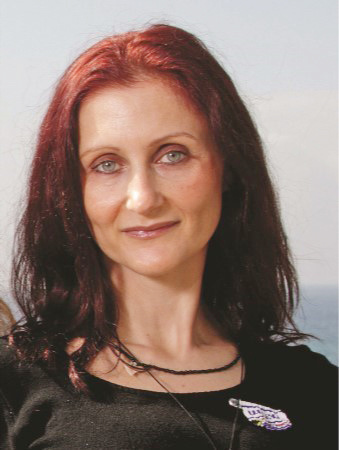OpEds
Tel Aviv ranked world’s happiest city

Is it the sunshine, blue skies, and warm waters of the Mediterranean? Could it be the delicious food and top-class restaurants, United Nations Educational, Scientific and Cultural Organisation (UNESCO) World Heritage architecture and vibrant nightlife? Maybe it’s the cultural diversity or even the dog beach – whatever the secret ingredient is, it has contributed to Tel Aviv being voted the world’s happiest city by The Travel magazine.
It’s often said that Israel’s cities each have their own unique personalities. Jerusalem is serious and spiritual; Haifa is intellectual and artistic; and Tel Aviv pulsates with an unmatched energy. If New York is the city “that never sleeps”, Tel Aviv is the city that may take the odd power nap.
Tel Aviv is more than a century old, founded in 1909 by the yishuv on the outskirts of the ancient port city of Jaffa. Tel Aviv was then known as Ahuzat Bayit (House Estate or Homestead) until 1910, when the name was officially changed to Tel Aviv.
The first suburb was Neve Tzedek, established by a group of Sephardi Jewish families seeking to move outside the overcrowded Jaffa. The family of Aharon Chelouche, who is immortalised on a mural in the neighbourhood, moved to the area in 1883, with about 50 families following suit in the next few years. Today, art galleries, boutiques, and chic restaurants are interspersed with the original buildings and newer residential homes.
Tel Aviv is a kaleidoscope of architecture – which also reflects the city’s diverse population. The Bauhaus buildings, which have earned Tel Aviv the moniker “the White City”, are a UNESCO World Heritage Site, interspersed with standard boxy apartment blocks that look like they are on stilts, and the super modern skyscraper. The iconic Azrieli towers, with their signature circle, square, and triangle shaped buildings are a much loved landmark, and have featured in many a “Sex and the City – but in Tel Aviv” selfie.
Tel Aviv celebrated her diverse citizens long before diversity became the buzzword du jour. The embassies and consulars of the world jostle with hotels for prime real-estate position, and every June, they are decked out in their best rainbow Pride flag, ready for the massive parade and party. It doesn’t have to be Pride that prompts a party in one of the most open and tolerant cities in the world, it could just be Wednesday.
It’s a dog’s life in Israel’s “Little Orange”. With restaurants making sure they are pooch friendly to dog walking being a perfectly profitable way to earn a living, Tel Aviv is going to the dogs. There’s even a beach dedicated to man’s best friend.
If Jerusalem has its own syndrome and you can bump into a number of “prophets” on any given day, Tel Aviv has her fair share of weirdos. I love the woman who dresses in a coat that looks like Big Bird was maybe mugged of his pelt, and talks to herself while cycling up and down. Rain or shine, she always wears her coat.
I love them all. The young and fit zooming around on their “korkinets” (scooters), the sun worshippers running on the beach, the innovators and dealmakers, the tourists and revellers. The ancient and the modern. The political and the apathetic. The visitors and pioneers. The four legged and the two legged. The sensual sunny days, and the pulsating, energetic nights. I love them all.
Tel Aviv is a wonderful study in paradox. All of the distinct features come together to create a city that really makes you feel alive. It’s bold, brash, and full of the wonderful chutzpah and attributes that define its personality. It’s easy to see why the city has been voted the world’s happiest. It’s a title well deserved.
- Rolene Marks is a Middle East commentator often heard on radio and TV, and is the co-founder of Lay of the Land and the SA-Israel Policy Forum.
